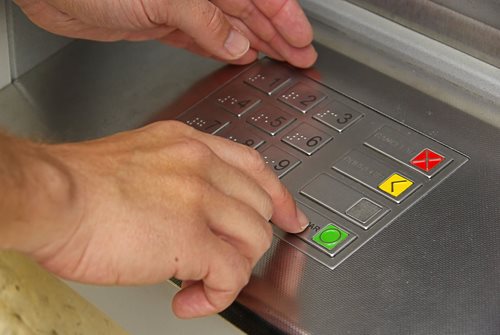Federal Trade Commission Explained

Federal Trade Commission Explained: Protecting Consumers and Promoting Competition
The Federal Trade Commission (FTC) is an independent agency of the United States government charged with protecting consumers from unfair and deceptive practices, promoting competition in the marketplace, and enforcing antitrust laws. In this article, we will provide a brief overview of the FTC, including its history, functions, and role in consumer protection and competition promotion.
History of the Federal Trade Commission
The FTC was established in 1914, following the passage of the Federal Trade Commission Act. Its creation was in response to growing concerns about unfair business practices, including false advertising, monopolies, and price-fixing. The FTC’s original mandate was to prevent unfair methods of competition and unfair or deceptive acts or practices in commerce.
Over time, the FTC’s responsibilities have expanded to cover a wide range of consumer protection and competition issues, including privacy, data security, consumer fraud, and antitrust enforcement.
Functions of the Federal Trade Commission
The FTC has several key functions that help it fulfill its mandate to protect consumers and promote competition. These functions include:
1. Investigating and prosecuting unfair or deceptive business practices: The FTC has the authority to investigate and litigate against businesses that engage in practices that are unfair or deceptive to consumers, such as false advertising, pyramid schemes, and other forms of fraud.
2. Enforcing antitrust laws: The FTC works to prevent monopolies and anti-competitive practices that harm consumers and stifle innovation. It has the authority to investigate and challenge mergers and acquisitions that may result in reduced competition.
3. Promoting consumer education and protection: The FTC provides consumers with information and resources to help them avoid scams and protect their privacy. Its consumer education efforts include publications, workshops, and online resources.
4. Protecting consumer privacy and data security: The FTC monitors businesses and organizations to ensure they are protecting consumers’ personal information and data. It investigates and takes action against data breaches and other security incidents that put consumers’ personal information at risk.
5. Providing guidance to businesses: The FTC provides guidance to businesses on how to comply with consumer protection and antitrust laws. It also works with industry groups and other stakeholders to develop best practices and standards to promote competition and protect consumers.
Role of the Federal Trade Commission in Consumer Protection and Promoting Competition
The FTC plays a critical role in protecting consumers and promoting competition in the United States. Its activities help to ensure that businesses operate fairly and transparently, that consumers receive accurate information about products and services, and that competition is not stifled by anti-competitive practices.
The FTC’s consumer protection activities include investigating and prosecuting fraud, and providing consumers with resources and education to help them avoid scams and protect their privacy. Its competition promotion activities include enforcing antitrust laws, monitoring mergers and acquisitions, and promoting best practices and standards to encourage competition.
In Conclusion
The Federal Trade Commission is an essential agency for promoting consumer protection and competition in the United States. Its mission to prevent unfair and deceptive business practices, enforce antitrust laws, and educate consumers is critical for ensuring a fair and transparent marketplace. As consumers and citizens, it is essential to understand the role and functions of the FTC, as it plays a vital role in safeguarding our rights and interests.
What is the Federal Trade Commission?
The Federal Trade Commission is an independent government agency of the United States. Established in 1914 by the Federal Trade Commission Act, the Federal Trade Commission maintains its principal mission of promoting consumer protection and preventing harmfully anti-competitive business practices.
The Federal Trade Commission Act was instituted by President Woodrow Wilson, in large part, to dissuade the presence of trusts, which acted as major political concerns during the Progressive Era. During modern times, the Federal Trade Commission Act is responsible towards delegating the enforcement of additional business regulation statutes. Since the agency’s inception, the Federal Trade Commission has enforced numerous provisions of various legislations to monitor situations revolving around antitrust statutes and consumer protection law.
The Federal Trade Commission is led by five commissioners who are first nominated by the President of the United States and subsequently elected or confirmed by the United States Senate. Under the Federal Trade Commission Act, regulations were instituted to ban uniform party representation of the elected commissioners; no more than three Commissioners may be of the same political party. A commissioner’s term in the agency lasts seven years and the terms are staggered so that in a given year only one Commissioner’s term will expire.
The Bureau of Consumer Protection: The Bureau of Consumer Protection’s primary responsibility is to protect consumers against deceptive or fraudulent acts in commerce. With written consent of the Federal Trade Commission, the Bureau of Consumer protection, through their legal professionals, enforce federal laws related to consumer affairs in addition to the rules promulgated by the Federal Trade Commission.
The functions of the Bureau of Consumer Protection regulates commerce and promotes fair business practices by conducting investigations, enforcing various actions, and providing consumer and business education to the fundamental players of commerce.
The Bureau of Consumer Protection will supply the various methods and functions to the following areas or concerns: financial products and practices, advertising and marketing, privacy and identity protection, telemarketing fraud, etc. Under the Federal Trade Commission Act, the confirmed Commissioner possesses the authority to bring actions in federal court through its own legal professionals. In matters of consumer protection, the Federal Trade Commission supports the United States Department of Justice.
The Bureau of Competition: The Bureau of Competition is the primary division of the Federal Trade Commission responsible for preventing and eliminating “anticompetitive” business practices. The Bureau of Competition achieves this through the enforcement of various antitrust laws, the investigation practices into non-merger business practices that may impede competition, and through conducting a review of proposed mergers.
Practice or non-merger situations that may be impeding competition include any merger, which involves agreements between direct competitors (horizontal restraints) and vertical restraints where agreements among businesses at various levels in the same industry are accomplished (agreements made between suppliers and commercial buyers).
Bureau of Economics: The Bureau of Economics was created to support the Bureau of Competition and Consumer Protection by providing knowledge and resources related to the economic impacts of the Federal Trade Commission’s operation and legislation.
Activities of the Federal Trade Commission
The Federal Trade Commission accomplishes its mission statement by conducting investigations that are brought to light by reports from businesses and consumers, congressional inquiries, reports in the media, and pre-merger notification filings. The investigations conducted by the FTC may pertain to an entire industry or a single company.
The primary issues that the FTC targets include, false advertising, other forms of fraud and deceptive practices that seek to take advantage of the consumer. The court system of the United States has identified three primary factors that must be considered in consumer unfairness cases: the practice either injures the consumer, violates an established public policy, and the act or transaction is unscrupulous and unethical at its core.





















